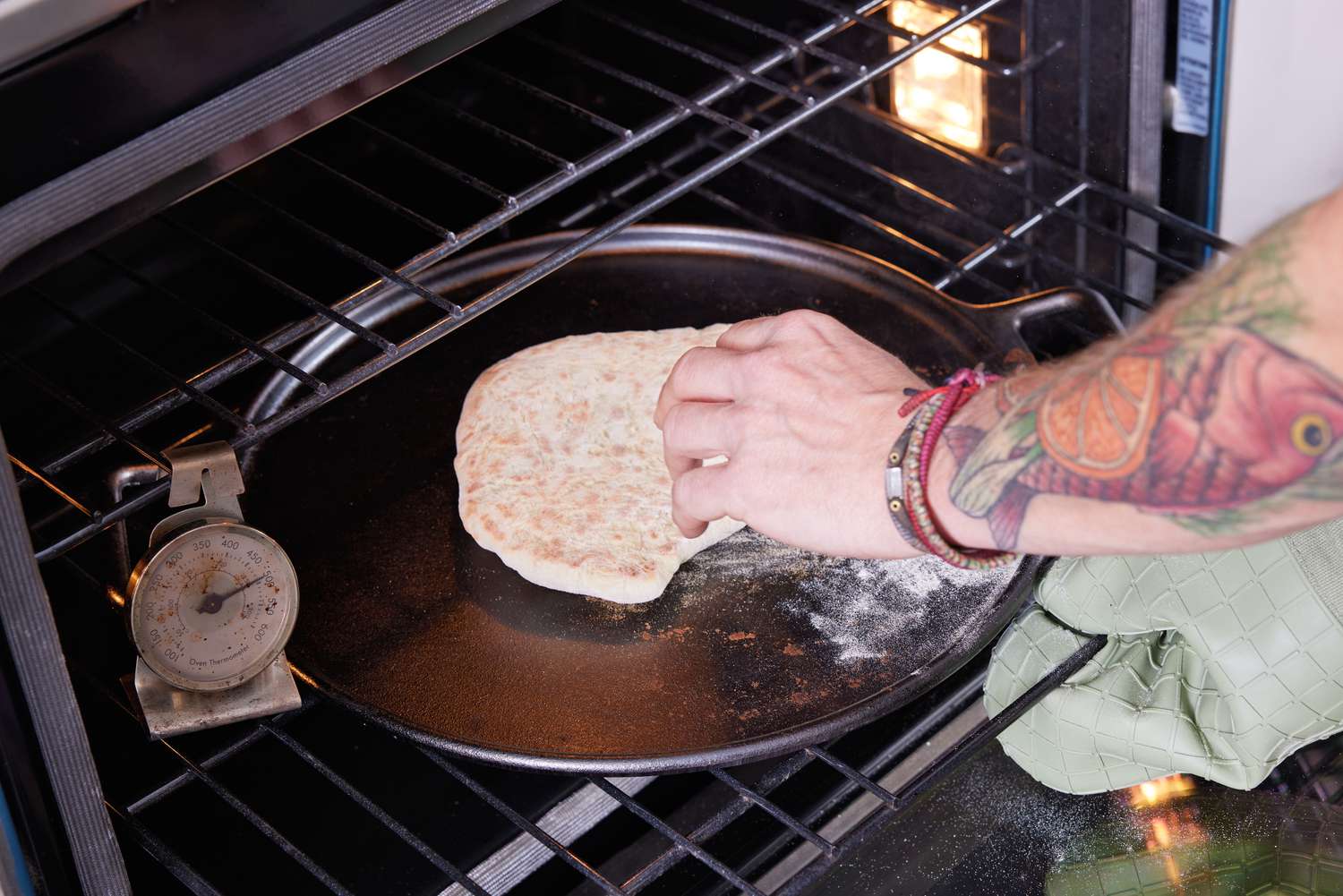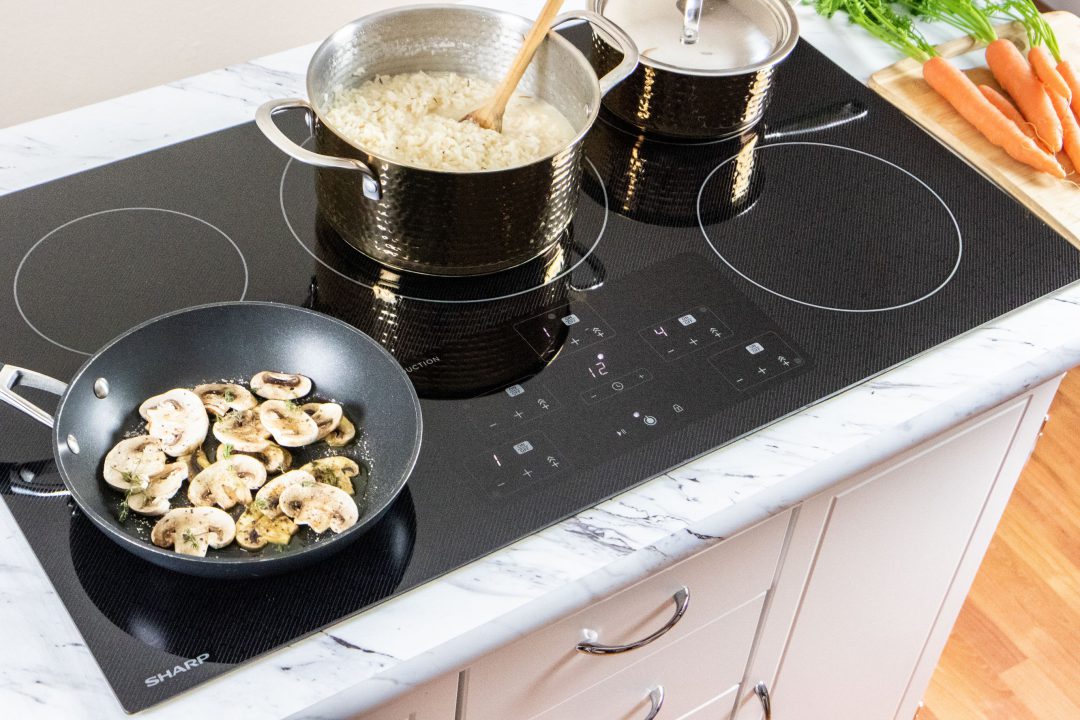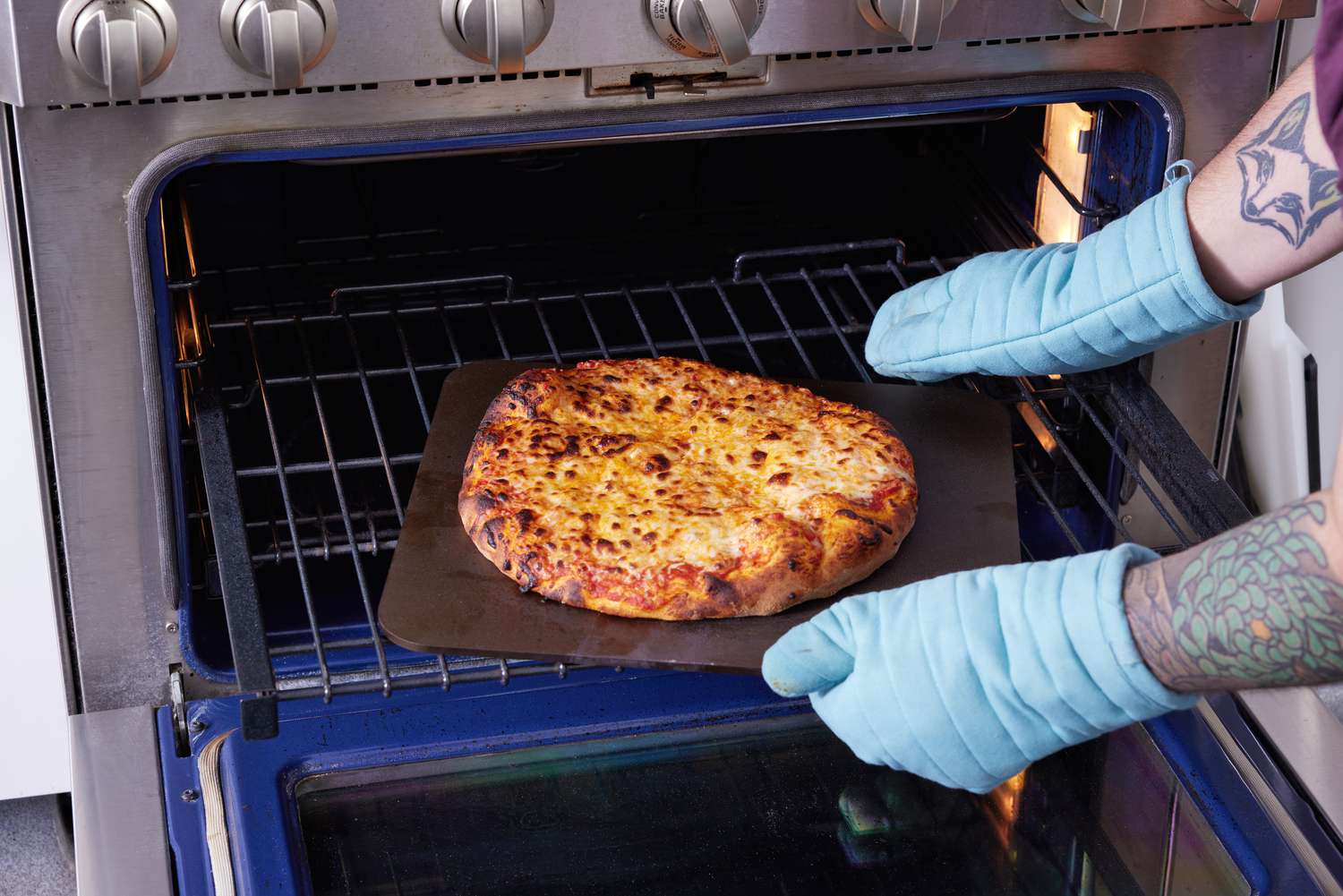**For culinary professionals** seeking to **elevate the quality** of their cooking in an RV kitchen, a baking stone is an essential tool. These stones offer a variety of culinary benefits, allowing for even heat distribution and consistently delicious results. Whether you're crafting artisan pizzas, crispy baked breads, or delicate pastries, a baking stone will enhance your RV cooking experience significantly.

What is a Baking Stone?
A baking stone is a flat, thick piece of stone or ceramic that is placed in an oven to mimic the cooking qualities of a brick oven. The stone's porous nature absorbs moisture from the dough as it bakes, producing a **crispy crust** and moist interior. For more details, you can read about the versatility of baking stones in baking different items [here](https://www.epicurious.com/expert-advice/your-pizza-stone-is-good-for-more-than-just-pizza-article).
Benefits of Using a Baking Stone in RVs
Mobile kitchens in RVs often come with space and appliance limitations. However, integrating a baking stone is a practical way to elevate cooking without compromising on quality. Here are several key benefits:
- Even Heat Distribution: A baking stone stores heat effectively, distributing it across its surface to ensure **even cooking**.
- Extended Baking Versatility: With a baking stone, your RV oven can become a powerhouse, capable of baking everything from cookies to loaves of bread. Explore baking stone gift ideas [here](https://culinacooks.com/blogs/blog/baking-stone-gift-ideas) that are perfect for RV enthusiasts.
- Durability and Efficiency: Made from materials like cordierite or ceramic, baking stones are tough and long-lasting, even in compact RV ovens.
Selecting the Right Baking Stone for Your RV
Choosing the right baking stone depends on several factors. From the size and compatibility with your existing RV oven to the material and cost, each element should cater to your specific culinary needs. For professional advice on transporting a baking stone safely, refer to this guide on [how to transport a baking stone](https://culinacooks.com/blogs/blog/how-to-transport-a-baking-stone).
Material Matters
The material of your baking stone is crucial. While clay stones are excellent for high heat, cordierite stones are renowned for their ability to withstand extreme temperatures. Additionally, ceramic stones provide excellent heat retention and distribution. Learn the top criteria for selecting a baking stone [here](https://culinacooks.com/blogs/blog/best-storage-for-baking-stones).
How to Use and Care for Your Baking Stone in an RV
For optimal results when using a baking stone in your RV, proper care and use are essential:
- Preheating: Ensure that you preheat your baking stone gradually to avoid cracking due to sudden temperature changes. Guidance on using a baking stone can be found [here](https://www.chefsresource.com/how-to-use-a-baking-stone/).
- Cleaning and Maintenance: Avoid soap or detergents. Instead, scrub it with a brush and rinse under hot water. Proper maintenance will extend the life of your baking stone and maintain its performance.
Creative Cooking: Expanding Your Menu
With a baking stone, the possibilities for expanding your RV kitchen menu are endless. From richly-flavored breads to perfectly cooked pizzas, a baking stone is a powerful tool for a creative culinary experience. Check out some innovative ways to use baking stones [here](https://flavorycooking.com/how-do-you-use-a-baking-stone/).
Frequently Asked Questions
1. What size baking stone should I get for my RV kitchen?
The size of your baking stone should fit comfortably in your oven, allowing for airflow but maximizing surface area for cooking. It may be beneficial to measure your oven interior before purchasing.
2. Can I use my RV baking stone on a grill?
Yes, many baking stones are versatile enough to be used on grills, providing another layer of **culinary creativity** to your **RV kitchen** setups.
3. Are there differences in baking stones for gas versus electric ovens?
While most baking stones function well in both types, its important to consider heat tolerance and material when choosing a stone suited to your oven type.
This article contains affiliate links. We may earn a commission at no extra cost to you.






Leave a comment
This site is protected by hCaptcha and the hCaptcha Privacy Policy and Terms of Service apply.